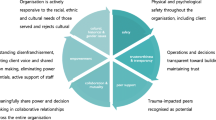Abstract
Objective
This study compares the instruments and interventions utilized to identify and remediate unprofessional behaviors in medical students across U.S. psychiatry clerkships.
Methods
A 20-item questionnaire was distributed to 120 psychiatry clerkship directors and directors of medical student education, in the U.S., inquiring into the procedures utilized for identifying monitoring and remediating unprofessional behaviors among medical students during their psychiatry clerkship.
Results
Fifty seven (47.5%) clerkship directors responded to the questionnaire. Professionalism is evaluated by 96% of the clerkships with the most frequent goals being to provide feedback to students and to specifically identify problematic behaviors. Seventy percent of the clerkships identify one to three students per year with unprofessional behaviors that warrant intervention. The majority (86%) of the respondents note that unprofessional behaviors may impede the advancement of students during their medical education. A recommendation for a mental health evaluation occurs in at least 76% of cases. Dismissal from medical school for unprofessional behaviors is most likely recommended based on the severity and/or repetitiveness of the acts.
Conclusions
There is concordance among clerkship directors regarding the importance of identifying unprofessional behaviors among medical students although there exists a range of modalities for monitoring, remediating, and disciplining such behaviors.
Similar content being viewed by others
References
Project Professionalism. Philadelphia, Penn. American Board of Internal Medicine; 1995. www.abim.org/pubs/profess.pdf
Swick HM, Szenas P, Danoff D, et al: Teaching professionalism in undergraduate medical education. JAMA 1999; 282: 830–832
Embedding Professionalism in Medical Education: Assessment as a Tool for Implementation. Report from an Invitational Conference cosponsored by the AAMC and NBME, May 2002
Kenny NP, Mann KV, MacLeod H: Role modeling in physicians’ professional formation: reconsidering an essential but untapped educational strategy. Acad Med 2003; 78: 1203–1210
Papadakis MA, Osborn EHS, Cooke M, Healy K: A strategy for the detection and evaluation of unprofessional behavior in medical students. Acad Med 1999; 74: 980–990
Phelan S, Obenshain SS, Galey WR: Evaluation of the non-cognitive professional traits of medical students. Acad Med 1993; 68: 799–803
Papadakis MA, Loeser H, Healy K: Early detection and evaluation of professionalism deficiencies in medical students. Acad Med 2001; 76: 1100–1106
Ginsburg S, Regehr G, Stern D, Lingard L: The anatomy of the professional lapse: bridging the gap between traditional frameworks and students’ perceptions. Acad Med 2002; 77: 516–522
Papadakis MA, Hodgson CS, Teherani A, Kohatsu ND: Unprofessional behavior in medical school is associated with subsequent disciplinary action by a state medical board. Acad Med 2004; 79: 244–249
Author information
Authors and Affiliations
Corresponding author
Rights and permissions
About this article
Cite this article
Bennett, A.J., Roman, B., Arnold, L.M. et al. Professionalism Deficits Among Medical Students: Models of Identification and Intervention. Acad Psychiatry 29, 426–432 (2005). https://doi.org/10.1176/appi.ap.29.5.426
Received:
Revised:
Accepted:
Published:
Issue Date:
DOI: https://doi.org/10.1176/appi.ap.29.5.426



